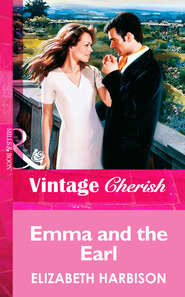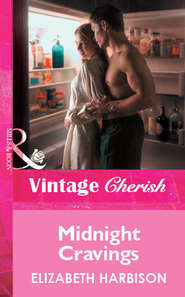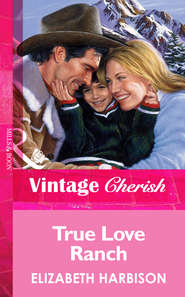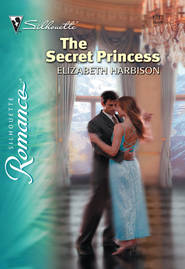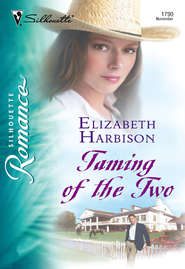По всем вопросам обращайтесь на: info@litportal.ru
(©) 2003-2025.
✖
Emma and the Earl
Автор
Год написания книги
2019
Настройки чтения
Размер шрифта
Высота строк
Поля
Sincerely,
Emma Lawrence
June 9, 1998
3431 41st St., N.W.
Apartment #202
Washington, D.C. 20017
U.S.A.
18 Cecile Park Road
Crouch End
London, N8 9AS
U.K.
Dear John,
Forgive the kitschy Washington, D.C., postcard, but I wanted to get this note off to you as soon as possible, so I had to settle for what the lunch joint across the street from work had to offer. It was this or that hideous letterhead at work. By the way, when I tried to look up your phone number, the international operator said you were unlisted!
So anyway, are you ready for the big news? (Drum roll here, please): we’re finally going to meet!
The lab is sending me to the U.K. from July 5-12. There’s a symposium on the sixth and seventh that I have to attend, but after that, apart from a few things I have to try and arrange, my schedule is going to be really flexible. Hope yours will be too…? I’m dying to see what you look like (why didn’t you ever send a picture?!) I know this isn’t much notice, but that’s the way it always seems to go around here, as you know all too well.
If you don’t get this in time to write me at home, you can contact me at a hotel called the Sunnington in Hampstead as of the fifth.
I’m out of room! Gotta run!
love,
Emma
Chapter One
“Let me get this straight. This American gardener to whom you’ve been writing love notes for two years in my name is finally coming to London and wants to meet you?”
Robert Brice Sorrelsby Palliser, the seventeenth earl of Palliser, looked at his friend, John Turnhill, in the mirror behind him. “She’s a pharmaceutical horticulturist, and I would hardly characterize our letters as “love notes.” But other than that, you’ve got it right, yes.”
John smiled, a little smugly. “And you want my permission to continue the charade and impersonate me in the flesh?”
Brice gave a resigned nod. “I can’t see any other way around it.”
John shook his head, clearly relishing Brice’s dilemma. “I cannot believe it. Is this the same Brice Palliser who sold the most successful daily newspaper in Britain because he felt that kind of journalism was ‘dishonest’?”
“It is dishonest.”
John gave a shout of laughter. “So is pretending to be someone you’re not.”
Brice started a hot objection, then paused. John was right. For two years Brice had corresponded with Emma Lawrence using John’s name and address in London, only a few miles away from Brice’s own London home. Regardless of his reasons—reasons which were very good and completely understandable—when you came right down to it, it was a deception.
Two years ago, John had published a photography book of English country gardens, and Emma, spotting an unusual flower in a photo of Brice’s Sheldale House garden, on Guernsey in the Channel Islands, had written to John asking about it. Since Brice was more familiar with the plant than John was, John passed the letter on to him. Brice, in turn, had answered for John. At the time it had seemed a good, efficient way to answer Emma’s query.
Brice’s correspondence with Emma had been very impersonal, at first. But then she’d written again, and something in her response had moved him. “I couldn’t help but laugh when you mentioned you were off to microwave a ‘pitiful chicken dinner,’” she’d written. “Believe it or not, I had the same thing on the table in front of me. I’m starting to think we’re cut from the same cloth. If you told me it was overcooked and rubbery, despite your best efforts, I’d be sure.…” He’d written back, not wanting to break the illusion he’d created, both for Emma and for himself. Before he knew it, a close friendship had developed. By then it was too late to tell her he wasn’t who she thought he was.
“How do you decide when it’s okay to lie and when it’s not?” John asked Brice now, his freckled face twitching into a goading grin.
“This was not a typical lie,” Brice said calmly. “The difference is in the intent. I didn’t tell Emma I was John Turnhill for any malicious reason, or to take advantage of her. You know as well as I do that I wrote that letter for you in your name as a favor because you were in a pinch. I never dreamed it would lead to any sort of personal correspondence.”
“Come on, old man.” John thumped his friend on the shoulder. “You’ve had a couple of years to tell her the truth now. Why haven’t you?”
“It’s ironic, I’ll concede that.” Brice bit out the words. The truth even sounded like a lie to his own ears. “But the reason is that she has a…a thing, as she puts it, about honesty.”
“A thing?”
“It’s really important to her. And rightly so.” He wouldn’t say more. It had been a confidence Emma had shared with him. He wasn’t going to give John the details, no matter how much they might support his own case. “The fact of the matter is that by the time I should have told her the truth, it was already too late.”
“It’s never too late to tell a woman you’re the earl of Palliser.” John gave a cynical laugh and gestured around the ornate room. “Surely she’d be thrilled to find out your true identity, rather than believe you’re plain old me.”
Brice looked at him seriously. “No, she wouldn’t.”
John studied Brice for a moment, then sat down in the Louis XVI chair in the light of a high narrow window. “Even if that’s so, I honestly don’t see how you can pull this off. A lot of people in this country know who you are on sight, especially women who read articles titled ‘The Ten Most Eligible Bachelors in Europe.’ How are you planning to avoid that kind of recognition?”
Brice gave a heavy sigh. John was right, he had gotten some of that kind of publicity over the years. Every now and then he learned of another magazine or newspaper who had put him on a bachelor list. “Emma wouldn’t read that kind of article.”
“But what if she did?”
Brice shrugged, certain she hadn’t. “How many people would really recognize me in the flesh after just seeing one or two badly reproduced photos?”
“That’s the question. If you ask me, you’re recognizable even from a bad photo.”
Brice looked at his reflection in a gilded mirror on the wall. His dark hair, slightly wavy and a little longer than usual, was fairly ordinary. On the other hand, his distinct Palliser bone structure—the high cheekbones and straight brow—were easily distinguished. The green eyes, which everyone likened to his late father’s, seemed somehow conspicuous.
“Look,” John said, interrupting his thoughts.
“Why don’t you just tell her the truth and let the proverbial chips fall where they may? It seems a lot easier than all this agonizing.”
“I don’t want to lose her,” Brice heard himself say, and realized that it was true. It might be selfish, but he wanted to preserve his friendship with Emma at any cost. “This is the only relationship that I’ve ever had with someone who accepts me for myself alone and not for this…” he gestured around the room, “this persona.”
“In leaving out this persona,” John gestured as Brice had done, “haven’t you left out a great deal of who you really are?”
Brice followed the sweep of John’s arm, assessing the office of his London home. Oriental carpets covered a gleaming wood floor. The high walls were adorned with priceless art and tapestries. His eye fell on a Remington painting, whose value was higher than that of some people’s homes. This wasn’t exactly the impression he had given Emma of his life, he knew. “Maybe.”
John gave a knowing nod. “And you’ve used my name to do it. That’s two enormous lies right there. It’s a tangled web all right.”






